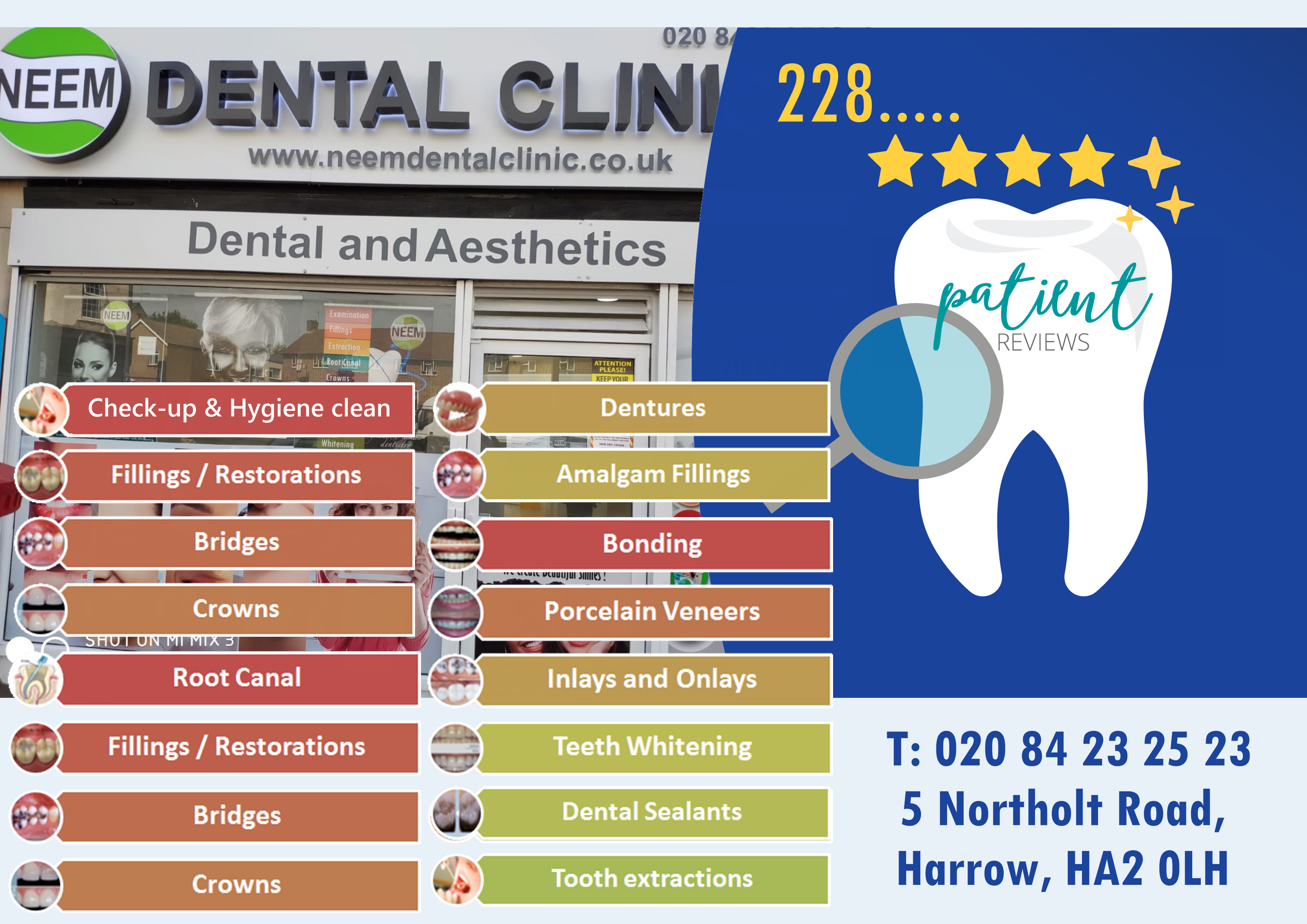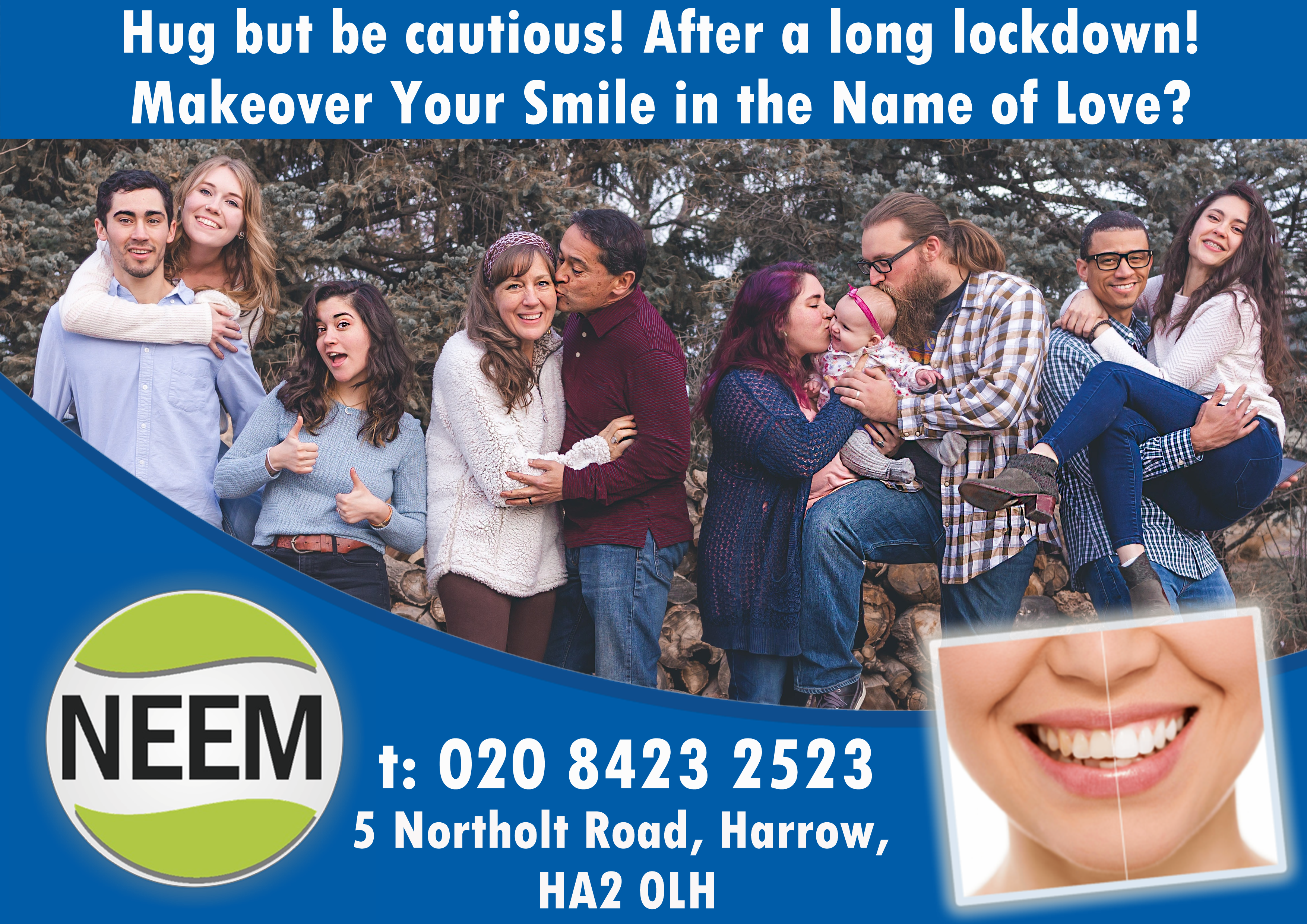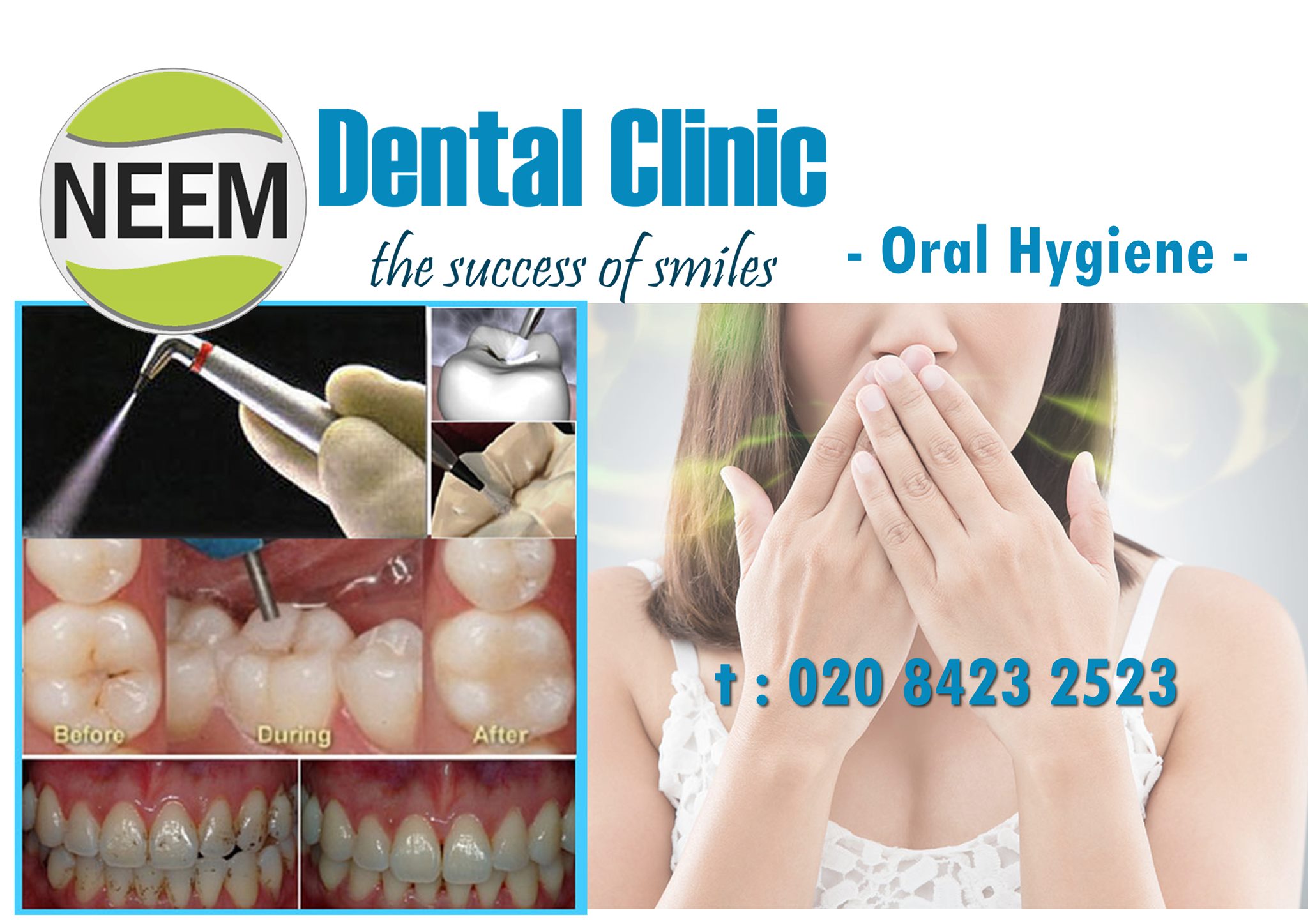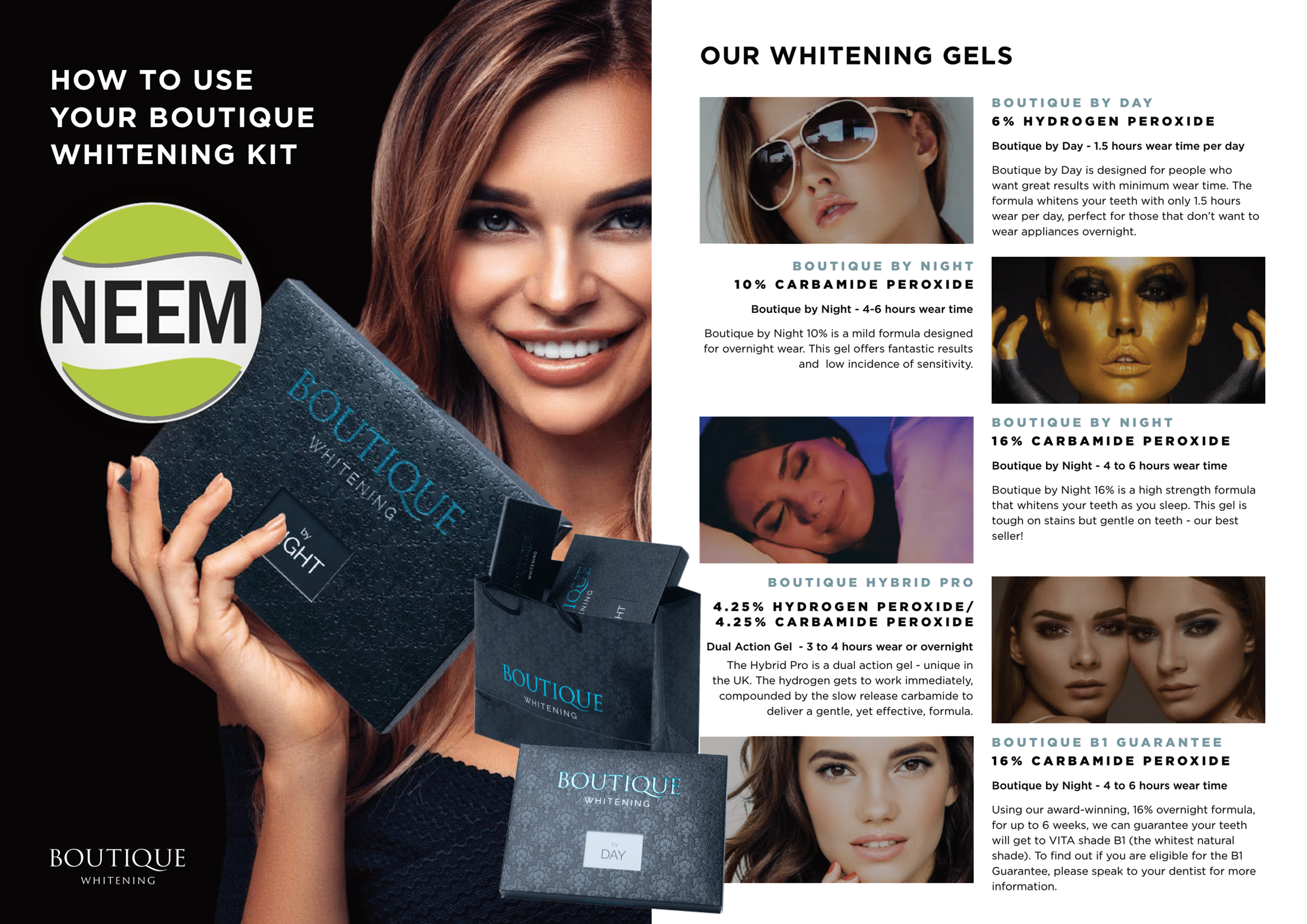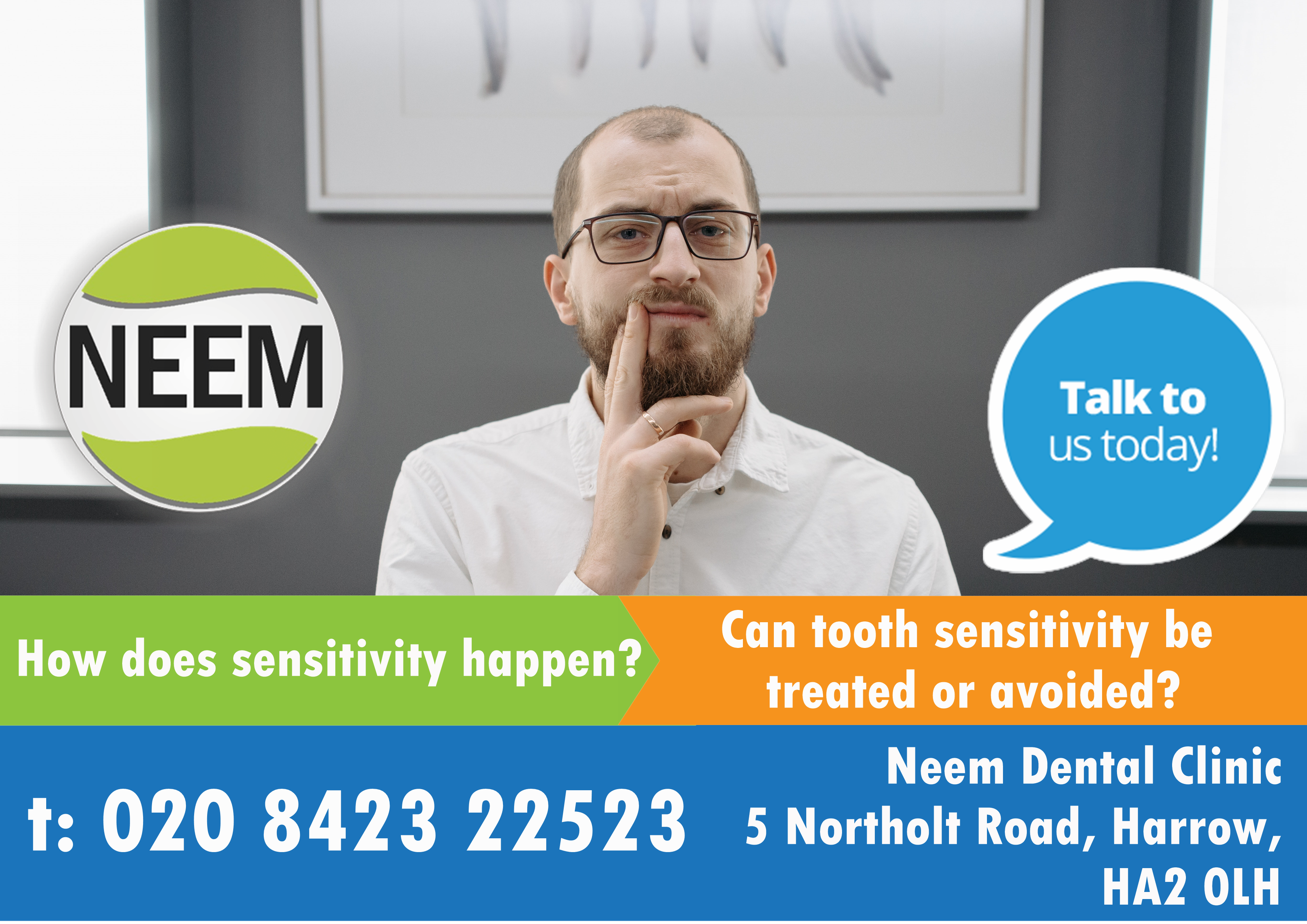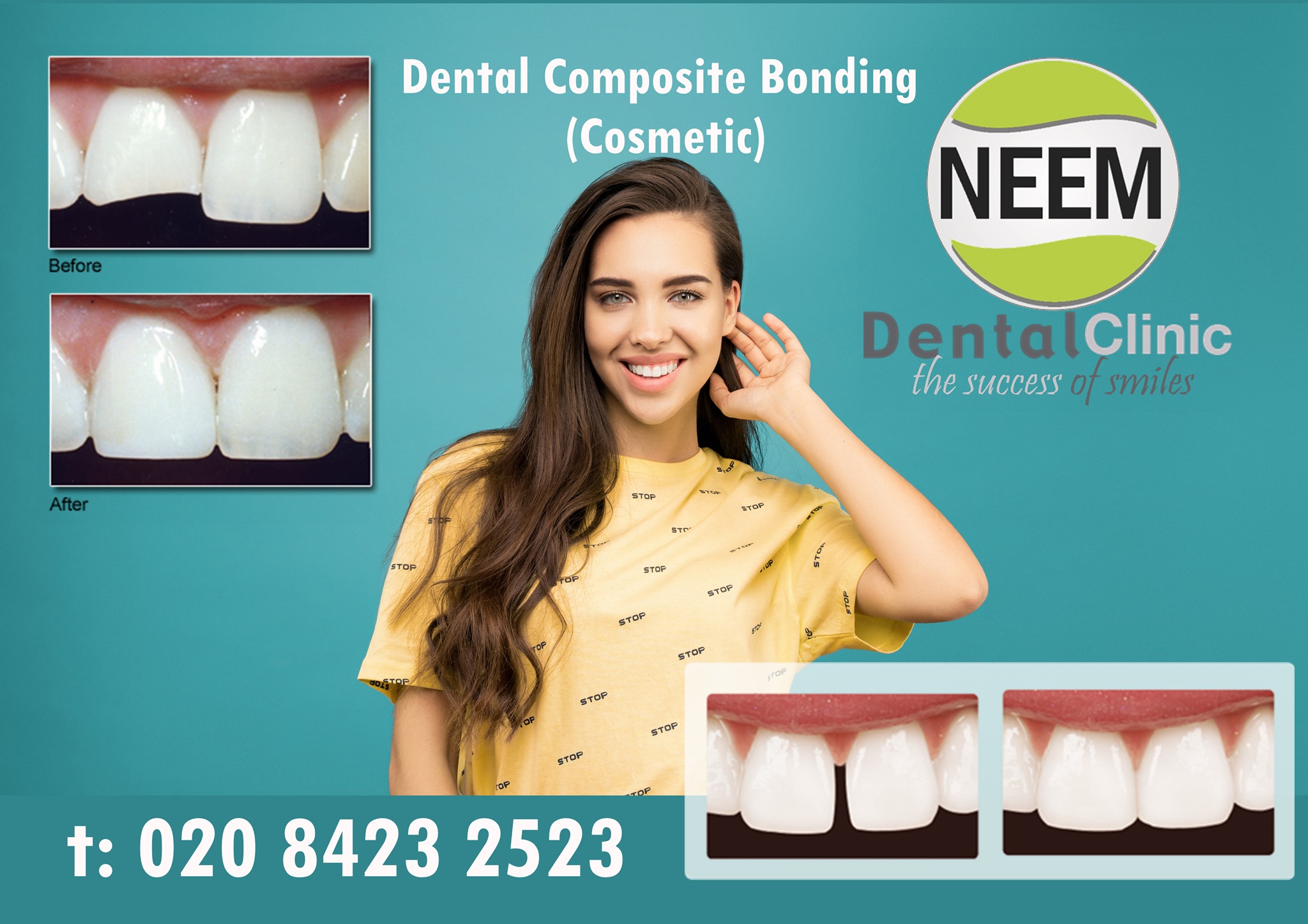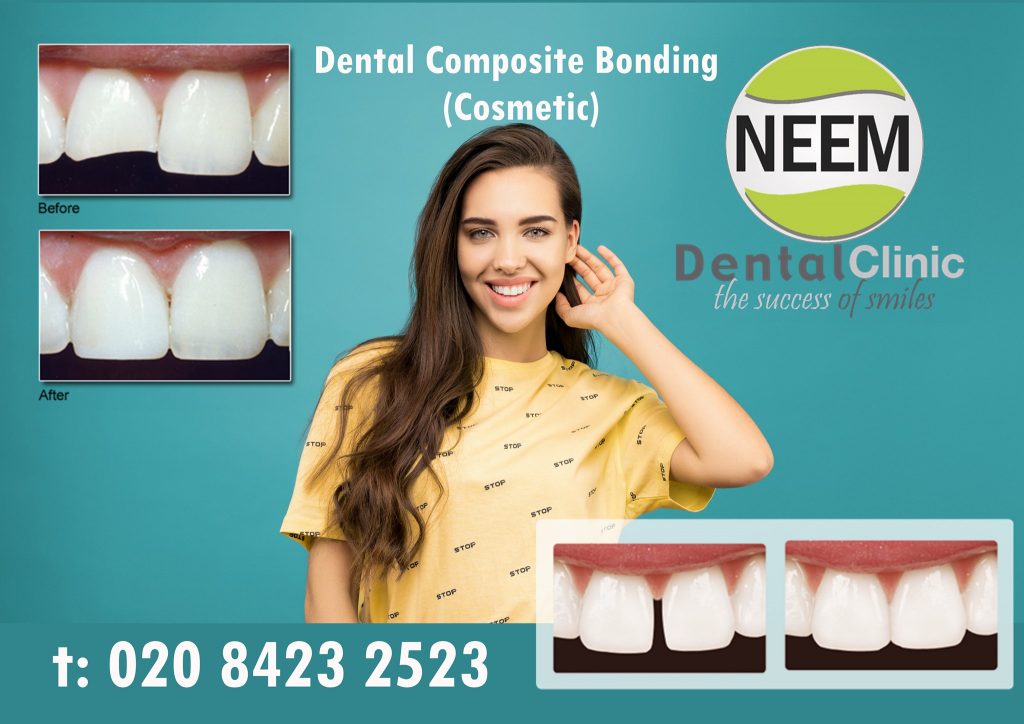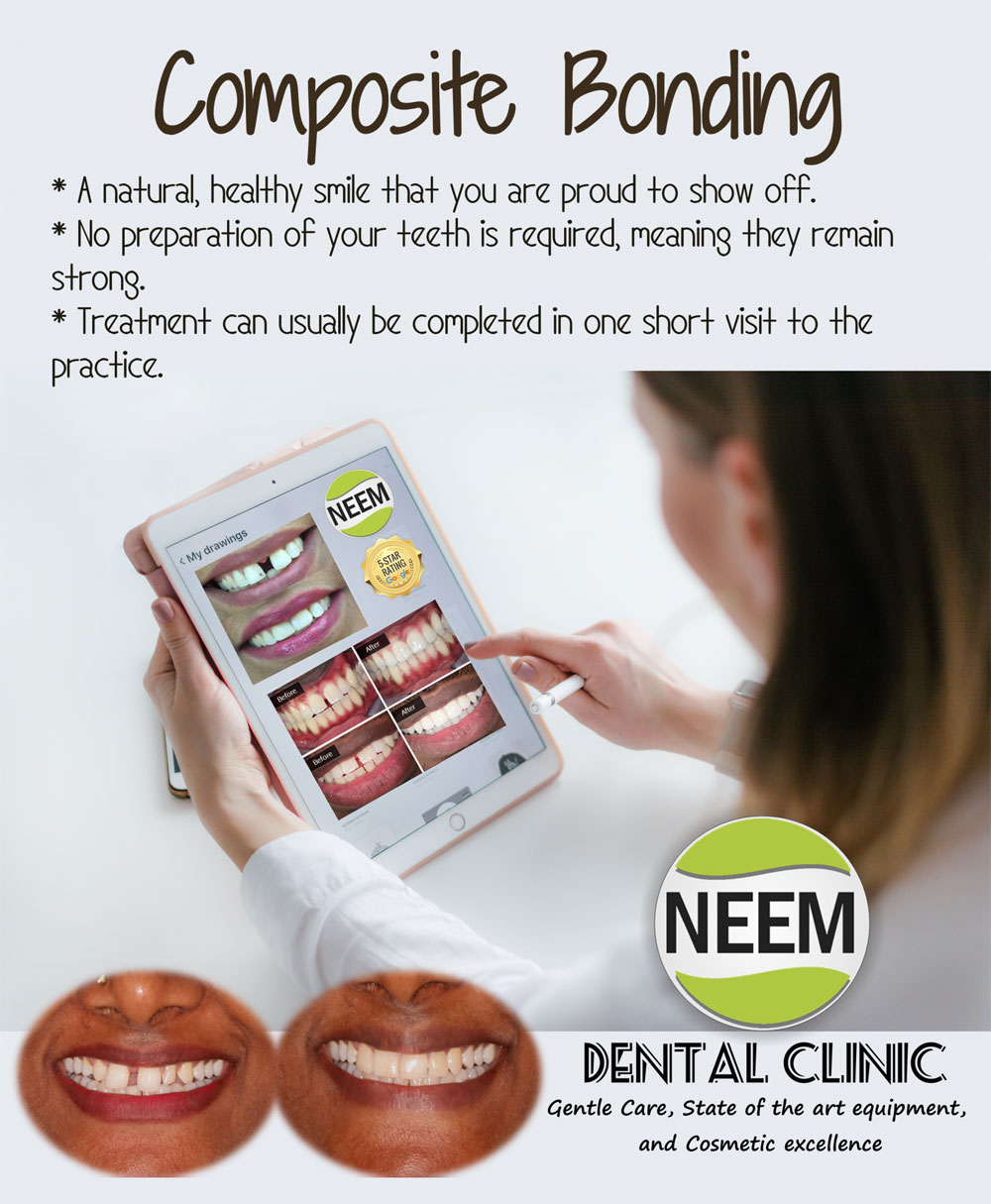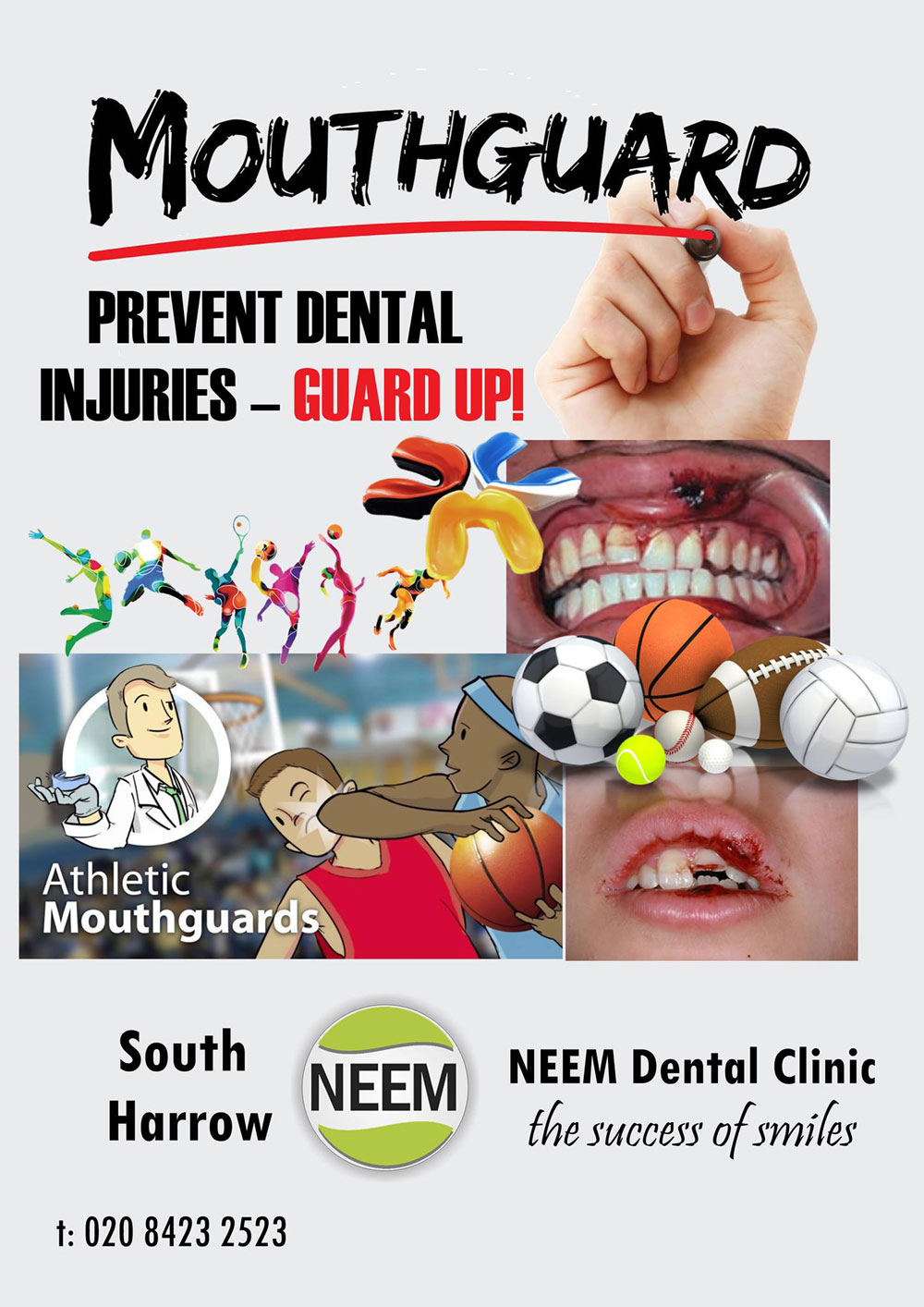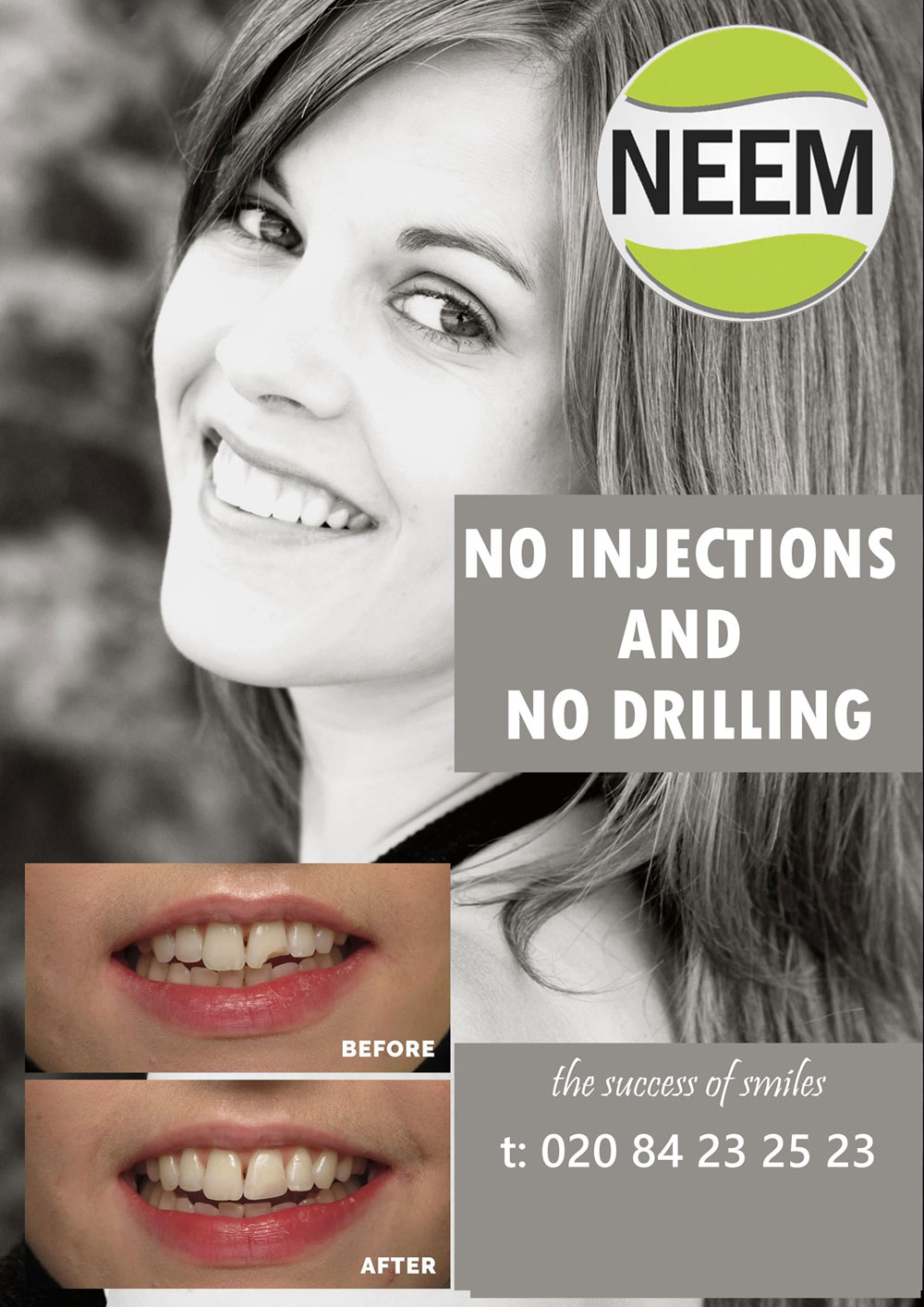Harrow Neem Dental Clinic provides expert, affordable private dentistry from our friendly, new dental clinic.Our responsive and friendly staff will schedule an appointment with you as soon as possible, and during your visit one of our experienced dentists will carry out a dental examination and determine the most appropriate type of treatment to be administered
Call us : 020 8243 2523

